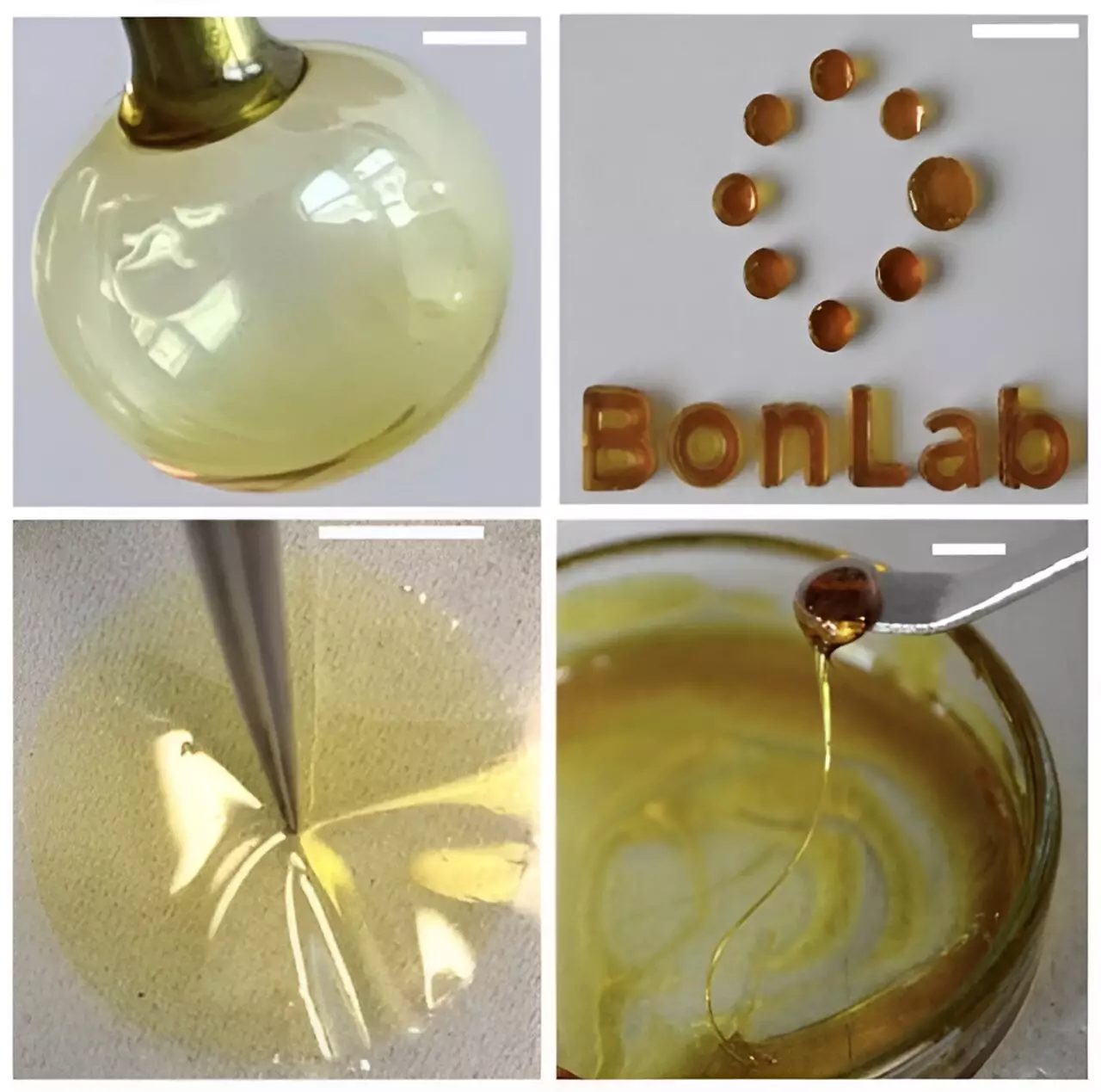Plastics have long been a staple in modern manufacturing, but their detrimental environmental impact has sparked a widespread demand for eco-friendly alternatives. In response to these growing concerns, researchers at The University of Warwick have made significant strides in the quest for sustainable alternatives to traditional plastics. By exploring the realm of organic eutectic materials, the team has identified promising candidates for replacing polymers in a variety of products.
The research team at The University of Warwick has delved into the realm of small organic molecules to create unique glasses and viscous liquids known as organic eutectics. These materials are formed by mixing crystalline components, resulting in intriguing properties that make them viable alternatives to conventional plastics. Through the use of advanced techniques such as differential scanning calorimetry (DSC) and UV-vis spectroscopy, the team has been able to precisely determine the compositions of these eutectic materials.
One of the key challenges in developing sustainable plastic alternatives is ensuring long-term stability. The research team at Warwick addressed this by conducting rigorous testing on the amorphous materials over an extended period of up to 14 months. By utilizing powder X-ray diffraction (PXRD), they were able to confirm the materials’ resistance to crystallization, ensuring that products made from these materials maintain their integrity throughout their shelf life.
Processability and Tailored Properties
Beyond stability, the researchers also investigated the processability of these materials by examining their rheological properties. It was found that the eutectic liquids exhibited low fragility indices, making them suitable for a wide range of manufacturing processes such as glassblowing, fiber pulling, film formation, and molding. Additionally, the team demonstrated that the properties of these materials could be tailored to specific applications by blending different eutectic systems or incorporating plasticizers.
Implications and Future Directions
Prof. Dr. ir. Stefan Bon, the lead investigator of the project, highlights the potential of these organic eutectic materials as high-performance alternatives to conventional polymers. By blurring the line between covalent and non-covalent materials, these eutectic systems offer a promising avenue for the development of sustainable plastic alternatives. The team’s work, now published in Chemical Science, showcases the practical potential of these materials, particularly in applications such as drug delivery and beyond.
The research conducted at The University of Warwick represents a significant breakthrough in the search for eco-friendly alternatives to traditional plastics. By harnessing the unique properties of organic eutectic materials, the team has laid the foundation for a new era of sustainable manufacturing. With continued innovation and exploration in this field, the future of eco-friendly plastics looks brighter than ever before.


Leave a Reply